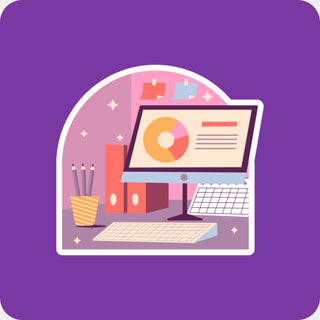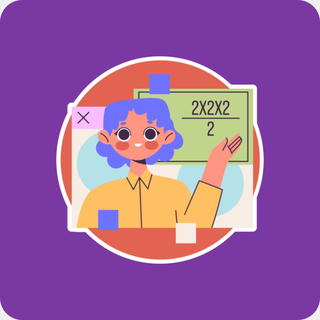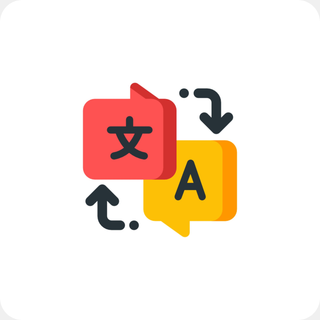Author: Ms L Padma Swathy, Counselling Psychologist
Artificial intelligence (AI) has revolutionized numerous industries, from healthcare to finance, and continues to reshape our world at an unprecedented pace. As AI becomes increasingly integrated into various aspects of our lives, the demand for professionals with expertise in this field is skyrocketing. Breaking into the AI industry can be both exciting and challenging, requiring a solid understanding of the qualifications and experience necessary to thrive in this rapidly evolving field. This article aims to provide an overview of the essential qualifications and
experience needed to enter the AI industry, guiding aspiring AI professionals on their journey towards a successful career in this dynamic field.
Breaking into the AI Industry: Essential Qualifications and Experience
1. Introduction to the AI industry
AI, or Artificial Intelligence, is not just limited to futuristic science fiction anymore. It has become an integral part of our everyday lives, from voice assistants like Siri and Alexa to personalized recommendations on streaming platforms. In simple terms, AI refers to the development of computer systems that can perform tasks that would typically require human intelligence. The importance of AI cannot be overstated. It has the potential to revolutionize various industries, including healthcare, finance, transportation, and more. AI technologies can automate repetitive tasks, enhance decision-making processes, and even unlock new possibilities that were once unimaginable. With its ever-growing impact, it's no wonder that the AI industry is experiencing exponential growth.
2. Required educational qualifications for entering the AI industry
To break into the AI industry, having a strong educational foundation is essential. While specific job requirements may vary, there are a few educational qualifications that can significantly boost your chances.
Relevant academic degrees and majors: Pursuing a degree in computer science, mathematics, statistics, or a related field lays a solid foundation for a career in AI. These disciplines provide essential knowledge in areas such as algorithms, data structures, probability, and linear algebra, which are crucial in understanding AI principles. Specialized AI programs and courses: Additionally, there are various specialized AI programs and courses available both online and at universities. These programs offer a more focused and in-depth exploration of AI concepts, including machine learning, natural language processing, and computer vision. Enrolling in such programs can give you a competitive edge in the industry.
3. Essential technical skills and knowledge
In addition to educational qualifications, developing specific technical skills and knowledge is vital for success in the AI industry. Programming languages for AI: Proficiency in programming languages like Python, R, and Java is essential for working with AI frameworks and libraries. Python, in particular, is widely used in AI due to its simplicity and extensive libraries tailored for machine learning. Machine learning algorithms and frameworks, Understanding machine learning algorithms and frameworks is fundamental to AI development. Algorithms like linear regression, decision trees, and neural networks are the building blocks of AI models. Familiarity with popular AI frameworks such as TensorFlow and PyTorch is also highly valuable. Data analysis and visualization techniques: Being able to manipulate and analyze large datasets is a crucial skill in AI. Proficiency in tools like SQL, pandas, and NumPy, along with data visualization libraries like Matplotlib and Tableau, allows for effective data exploration and
model building.
4. Practical experience and internships in AI
While qualifications and technical skills are important, practical experience is equally crucial in the AI industry. Importance of hands-on experience: Employers often value hands-on experience in AI projects and initiatives. This demonstrates your ability to apply theoretical knowledge to real-world problems. Look for opportunities to work on AI-related projects, either through internships,
research programs, or personal initiatives. Internship opportunities in AI: Many companies and research institutions offer internships specifically focused on AI. These internships provide invaluable industry exposure and allow you to work alongside experienced professionals. They can also serve as a stepping stone towards full-time employment in the AI field.
Building practical skills through personal projects: In addition to internships, building your own AI projects is an excellent way to gain practical experience. Develop your own machine learning models, work on Kaggle competitions, or contribute to open-source AI projects. These personal projects not only enhance your skills but also showcase your passion and initiative to potential employers.
In conclusion, breaking into the AI industry requires a combination of educational qualifications, technical skills, and practical experience. Pursue a relevant academic background, gain proficiency in programming languages and machine learning algorithms, and seek out hands-on experience through internships and personal projects. With dedication and the right qualifications, you'll be well on your way to a successful career in the exciting world of AI.
5. Networking and professional development opportunities
Joining AI communities and organizations When it comes to breaking into the AI industry, it's all about who you know. Joining AI communities and organizations can help you expand your network and connect with professionals in the field. Plus, you'll gain access to valuable resources, job boards, and mentorship opportunities. Attending conferences and workshops Conferences and workshops are great places to learn about the latest advancements in AI and meet industry experts. Not only will you gain knowledge, but you'll also have the chance to network with potential employers. Plus, you might even score some cool swag and free coffee along the way! Online platforms for AI professionals In today's digital age, online platforms have become essential for professionals in every industry. Make use of platforms like LinkedIn, GitHub, and AI-specific forums to showcase your skills, connect with like-minded individuals, and stay updated on industry trends. And who
knows, you might just stumble upon your dream job posting while scrolling through your newsfeed.
6. Showcasing AI projects and portfolio
Creating an impressive project portfolio Like a star-studded movie reel, your project portfolio should showcase your best work and highlight your AI skills. Include detailed descriptions of the projects you are worked on, the technologies you used, and the impact they had. Remember, your portfolio is like the AI version of your dating profile – it needs to impress! Developing a personal AI project Want to show potential employers that you have got what it takes? Develop a personal AI project that demonstrates your creativity and problem-solving abilities. It could be anything from building a recommendation system to creating a chatbot that tells jokes (because who doesn't love a good laugh. Just make sure it's something you are passionate about and can talk about
with enthusiasm.
7. Industry certifications and continuous learning
Relevant certifications and their benefits While a degree in AI or a related field is valuable, industry certifications can give you an extra edge. Certifications like TensorFlow Developer, AWS Certified Machine Learning - Specialty, or
Microsoft Certified: Azure AI Engineer Associate can showcase your expertise and make your resume stand out. Plus, they provide tangible proof of your skills and dedication to continuous learning. Continuing education and staying updated
AI is a rapidly evolving field, and it's crucial to stay updated with the latest advancements. Whether it's through online courses, attending workshops, or reading industry publications,make sure you carve out time for continuous education. Not only will it keep your skills sharp, but it'll also impress potential employers who want someone with their finger on the AI pulse.
8. Tips for breaking into the AI industry
Networking and building connections
Remember, it's not just about what you know, but also who you know. Attend industry events, meetups, and conferences to widen your network. Connect with AI professionals on LinkedIn and don't be afraid to reach out and grab a virtual coffee. Building genuine relationships can open doors and lead to exciting opportunities.
Improving communication and teamwork skills AI is not just about algorithms and models; collaboration and effective communication are essential. Develop your teamwork skills by participating in group projects or joining AI-focused
communities. Being able to articulate your ideas and work effectively in a team will make you a standout candidate in the AI world. Preparing for AI job interviews
When it's time to interview for that dream AI job, preparation is key. Research the company, familiarize yourself with their projects, and be ready to talk about how your skills align with their needs. Brush up on common AI interview questions and practice your responses. And remember, a little confidence and a dash of humor can go a long way in making a lasting impression.
Now that you're armed with these essential qualifications, networking opportunities, and a project portfolio, go forth and conquer the AI industry! With your skills and personality, there's no doubt you'll make a splash in this exciting field. As the AI industry continues to grow and transform, the demand for skilled professionals in this field will only increase. By acquiring the
necessary educational qualifications, technical skills, and practical experience, individuals can position themselves for success in the AI industry. Additionally, continuous learning, networking, and showcasing projects and expertise play a vital role in breaking into and thriving in this exciting field. With dedication, perseverance, and a commitment to staying up-to-date with the
latest advancements, aspiring AI professionals can pave their way towards rewarding and impactful careers in artificial intelligence.
FAQ
1. What educational qualifications are required to enter the AI industry?
While there is no strict set of qualifications, a strong foundation in computer science, mathematics, or a related field is highly beneficial. Many AI professionals hold advanced degrees such as a master's or Ph.D. in computer science with a specialization in AI.
2. Can I enter the AI industry without a computer science background?
Yes, it is possible to enter the AI industry without a computer science background. While a computer science degree provides a solid foundation, individuals from diverse educational backgrounds can gain relevant skills through specialized AI programs, online courses, and self-study.
3. How important is practical experience in AI?
Practical experience in AI is highly valued by employers. It allows individuals to apply theoretical knowledge, gain hands-on skills, and demonstrate their ability to tackle real-world challenges. Internships, personal projects, and participation in AI competitions can help individuals develop practical experience in the field.
4. How can I stay updated with the latest developments in the AI industry?
Staying updated with the latest developments in the AI industry is crucial. Subscribing to AI newsletters, following influential AI researchers and organizations on social media, and actively participating in AI communities and forums can help individuals stay informed about the latest
trends, research, and advancements in the field.
About the Author:
Ms. L. Padma Swathy is a Counselling Psychologist with a Post Graduation in Psychology. Trained and Certified in Art Therapy.
Trained and certified in using and interpreting the Career Assessment & Counselling assessment tool of Pearson India - MCMF (My Choice My Future) and various other assessment tools.
Trained and certified in the Promotion of Geriatric Mental Health workshop conducted by Vayomanasa Sanjeevani Geriatric Clinic & Services, NIMHANS, Bangalore.



























